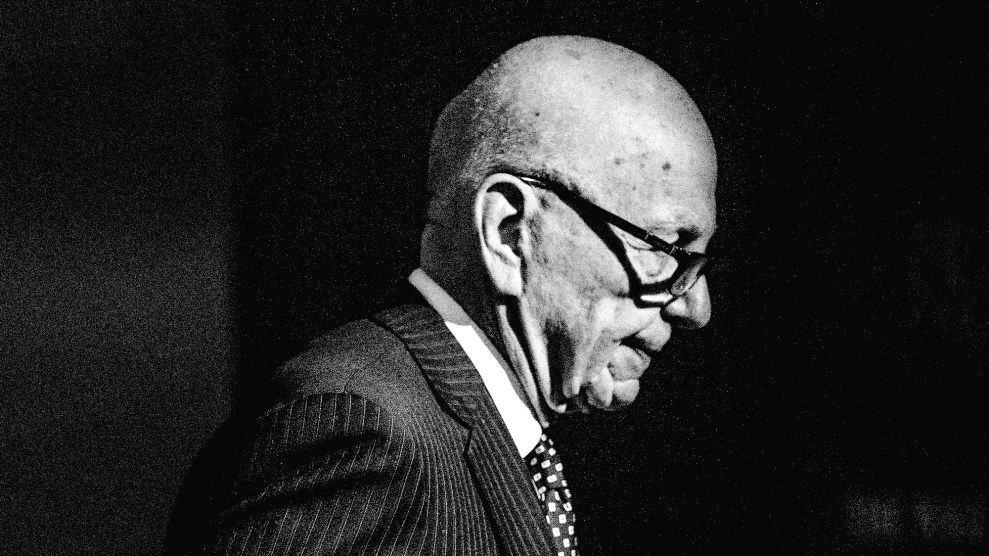Thirty years ago, the nation was transfixed by the Senate select committee’s hearings on the Watergate scandal. Tonight, PBS airs a documentary that combines live footage from the hearings with contemporary interviews with many of the primary players. “Watergate Plus 30” aims to give historical perspective, and is subtitled, portentously, “The Shadow of History.” But “Plus 30” was also made in conjunction with the paper that broke the original story, The Washington Post, and both the paper and the project’s public relations firm have focused on the film’s one piece of news: thirty years after the fact, former Nixon campaign aide Jeb Stuart Magruder avers on camera that he heard President Richard Nixon order the burglary at the Democratic National Committee’s headquarters — the famously bungled break-in that eventually brought down an administration.
Magruder, citing a recent near-death experience after surgery, says a change of heart has finally led him to go public with the details of a crucial phone call that he overheard between Attorney General John Mitchell and the president. Magruder says the president spoke directly of the planned break-in and said, “John, we need to do it.” If Nixon uttered these words, then the answer to Watergate’s most famous question — what did the president know and when did he know it? — is incontrovertibly: Everything, and from the beginning.
But everyone besides Magruder who could either confirm or deny this claim has now died. Mitchell, Nixon’s Chief of Staff H.R. Haldermann (who was also present) and Magruder all served their time long ago. Nixon died in 1994. It’s plausible that Magruder was more worried, as he now claims, about new publicity while the others were alive, but it’s also a bit strange that he waited so long to air such a fact.
Beyond the hype over the Magruder confession, however, the greatest contribution of “Plus 30” could be its focused portrayal of the Watergate burglary not as an aberration but as part of a pattern. The documentary makes a cohesive attempt to explain the worldview that led Nixon and his men to commit their abuses of power, and the portrait that it paints is of a man who would have ordered much more than a burglary if he thought it would serve his aims.
Nixon thought of the president’s powers as akin to those of a monarch; he had his lawyer compare him to Louis XIV. He was convinced that the anti-war protesters were backed by Communists, and when the FBI and the CIA could find no evidence to back such claims, Nixon simply told them to keep looking. When he stopped trusting the FBI and the CIA, he created an ipso facto secret police force to do the work — everything from unwarranted searches to burglaries and wiretaps — for him. Those who disagreed with him were labeled “enemies,” and Nixon sent his men to “get them.” The series of illegal covert operations that ended with Watergate began with Nixon’s single-minded desire to peg whoever had leaked information to the press about his secret and illegal war in Cambodia — even though there was little public outcry over the story.
To the very end, Nixon never thought what he had done was criminal. He compared his own secrets with those of other presidents, and came up with little that he found damning or even unusual.
The details, then, of what he knew when about the Watergate burglary are irrelevant because Nixon could — and did — do worse, as part of an overall worldview that placed the presidency above the Congress and the Constitution. He was not amoral, he was a Cold War warrior, acting on the strength of his convictions. He simply felt that he was above the law. The framers of our Constitution would have recognized in him the predictable impulses that their checks and balances were created to contain.
Watergate is often, and even in this documentary, put forward as the ultimate triumph of our system, a “testament to the strength of America’s constitutional democracy,” as the makers of the film put it. But the PBS documentary finishes with a group of depressing statements from reporters and politicians who don’t believe that very much has changed. Former Republican senator Lowell Weicker, once a member of the select committee, now says, “The effects were ephemeral. I see what’s going on now, and I worry… I wish I could tell you I did something, I helped set something in concrete, but I don’t think I did.” And while Magruder may make news by coming clean, the others involved contribute far more cynical, downbeat reflections. As John Dean says, “The lesson of Watergate is, don’t get caught.”












